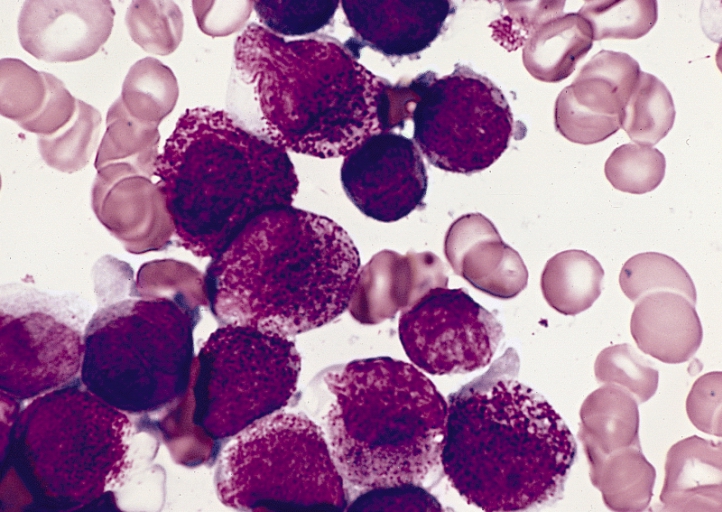19/03/2017
Print PageDKTK Tübingen: Launch of leukemia treatment trial with new antibody

Acute myeloid leukemia (AML) is a cancer of the blood that starts from immature blood cells. Now, for the first time, physicians and researchers from Tübingen are investigating whether this form of leukemia can be cured with a new antibody. The antibody is being administered after standard treatment. It marks leukemia cells that remain in the body following apparently successful chemotherapy. The marked leukemia cells are then identified and killed by defense cells. The new antibody has been modified to make it particularly effective at bringing the immune cells into contact with the cancer cells.
“We want to use this innovative immunotherapy treatment to activate the patient’s defense system. We hope it will be able to cure the disease and avoid the harsh side effects that occur after transplants of donor stem cells,” says Helmut Salih, head of the clinical trial.
This project has been made possible through the close collaboration between the Internal Medicine II Department at Tübingen University Hospital, the Immunology Department of the Inter-faculty Institute for Cell Biology at the University of Tübingen, where the antibody was developed, and the DKTK’s Translational Immunology Clinical Collaboration Unit in Tübingen.
The Phase I clinical trial was designed at Tübingen University Hospital and will be carried out in the Internal Medicine II departments (Oncology, Hematology and Clinical Immunology). The antibody was produced in the Good Manufacturing Practice laboratory (GMP lab) of the university hospital with the help of a company called Synimmune, a spin-off of the Immunology Department of the Inter-faculty Institute for Cell Biology at the University of Tübingen.
Information on the clinical trial:
The Phase I trial will test the safety and effectiveness of an Fc-optimized FLT3 antibody. It will accept patients with NPM1-mutated AML who are in full remission following their choice of treatment but in whom minimal residual disease can be detected. The trial is not intended for patients who have received or who are planning to receive transplants. The trial is being carried out at Tübingen University Hospital in the Internal Medicine II Department.
To take part, patients must enroll as outpatients. If they meet the eligibility criteria, they will be admitted to hospital for a period of no more than three days, where the antibody will be administered once.
Physicians can find out about the possibility of their patients taking part in the trial by sending an email or phoning +49 (0)7071 29 83275.
Original Publication:
Hofmann M, et al.: Generation, selection and preclinical characterization of an Fc-optimized FLT3-antibody for the treatment of myeloid leukaemia. In Leukemia (2012) DOI: 10.1038/leu.2011.372